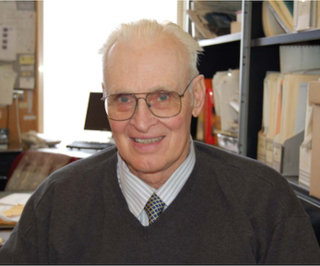A Quote by Betsy Hodges
Human-induced climate change is a scientific reality, and its effective control is a moral imperative for humanity.
Quote Topics
Related Quotes
... universal adoption of the institutions of the free society would better enable adaptation to climate both now and in the future. It would also ensure that, if at some point in the future, a real catastrophe, whether human-induced or otherwise (including climate change), does loom on the horizon, humanity would be in a better position to address it.
Despite the international scientific community's consensus on climate change, a small number of critics continue to deny that climate change exists or that humans are causing it. Widely known as climate change "skeptics" or "deniers," these individuals are generally not climate scientists and do not debate the science with the climate scientists.
When physics, chemistry, biology, medicine, contribute to the detection of concrete human woes and to the development of plans for remedying them and relieving the human estate, they become moral; they become part of the apparatus of moral inquiry or science? When the consciousness of science is fully impregnated with the consciousness of human value, the greatest dualism which now weighs humanity down, the split between the material, the mechanical and the scientific and the moral and ideal will be destroyed.
Many people have the impression that there is significant scientific disagreement about global climate change. It's time to lay that misapprehension to rest. There is a scientific consensus on the fact that Earth's climate is heating up and human activities are part of the reason. We need to stop repeating nonsense about the uncertainty of global warming and start talking seriously about the right approach to address it.
As for climate change, it's by now widely accepted by the scientific community that we have entered a new geological era, the Anthropocene, in which the Earth's climate is being radically modified by human action, creating a very different planet, one that may not be able to sustain organized human life in anything like a form we would want to tolerate.
It is certainly true that conservative Christians are much more likely to doubt the reality of climate change than mainline Christians or the unaffiliated. But when we control for political affiliation and for the important role of thought leaders in determining our opinions on social issues such as climate change, most of the faith-related bias disappears.
If we think that we can somehow gain control of the US government, bring it under popular, enlightened progressive control, preserve a habitable climate, and rein in the dangers of nuclear and other warfare, then we should. However, if we think it's more likely that California can achieve those goals by secession, then we should go down that path. There's no question. It's an absolute moral imperative.
































